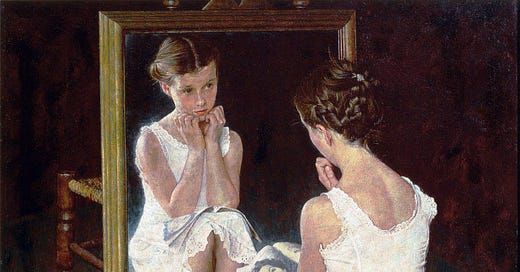Am I cool? What is cool? Is it ok that I’m thinking about what’s cool?
We all go through life asking these questions. Usually we stumble upon some theory of life that doesn’t answer them, and instead prompts us to ask different kinds of questions. But I think that’s where the usual, often inscrutably deep theories of life miss the mark. Recently I’ve landed on my own theory, one rooted in a kind of common sense, one that answers some of my questions about cool.
The theory, in brief: Life is about finding your cool self and then living as much of it as you can being that person.1
II
You might be wondering what one’s cool self is.
In my simplest definition, it’s the version of you that feels like you’re being yourself and feels cool. Naturally, this hinges on how we define cool. So in the fewest words I can muster, cool means being authentic, confident, calm, and original.
Authentic meaning being yourself, not pretending to be someone else. Confident mea…




